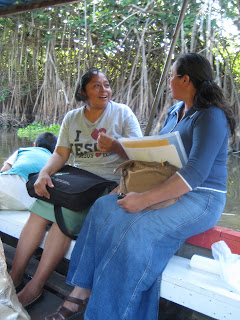
Out of all the countries in the world, it is perhaps surprising that Costa Rica is the 'happiest'. But according to the Happy Planet Index, Central America's most stable country takes the number one spot.
The Happy Planet Index (HPI) is designed to monitor quality of life in a more holistic and phycological terms than Gross National Product (GNP). While traditional scales focus on economic progress to measure development, HPI is founded on the idea that a society is only truly advancing when material and spiritual development take place concurrently. The four pillars of GNH are the promotion of sustainable development, preservation and promotion of cultural values, conservation of the natural environment, and establishment of good governance.
Costa Rica comes in first place, despite the GNP being only, whereas the United States and the UK come in at - and --, although their GNP are much higher at ___ and ___ respectively. Both the HPI and the Gross National Happiness index indicate that although money is indisputably important to a happy life, after a certain point the GNP appears to make little difference.
So why is Costa Rica so happy? The country's 1.9 million visitors a year will undoubtedly list beautiful beaches, wildlife and cloud forests among the reasons to be cheerful. Indeed, Costa Rica's successful ecotourism market brings in close to $1.92 billion a year. It is a model that sees tourists helping on conservation projects across the country, not only bringing cash to the economy but also ticking both the sustainable development and conservation of natural environment boxes on the HPI index.
In terms of democracy, Costa Rica is also the most stable country in Central America, having enjoyed democratic governments since 1953: Guatemala, Nicaragua, Honduras and Panama have all suffered civil wars, military coups or US invasions from the 1970s right up until the recent Honduran constitutional crisis.
